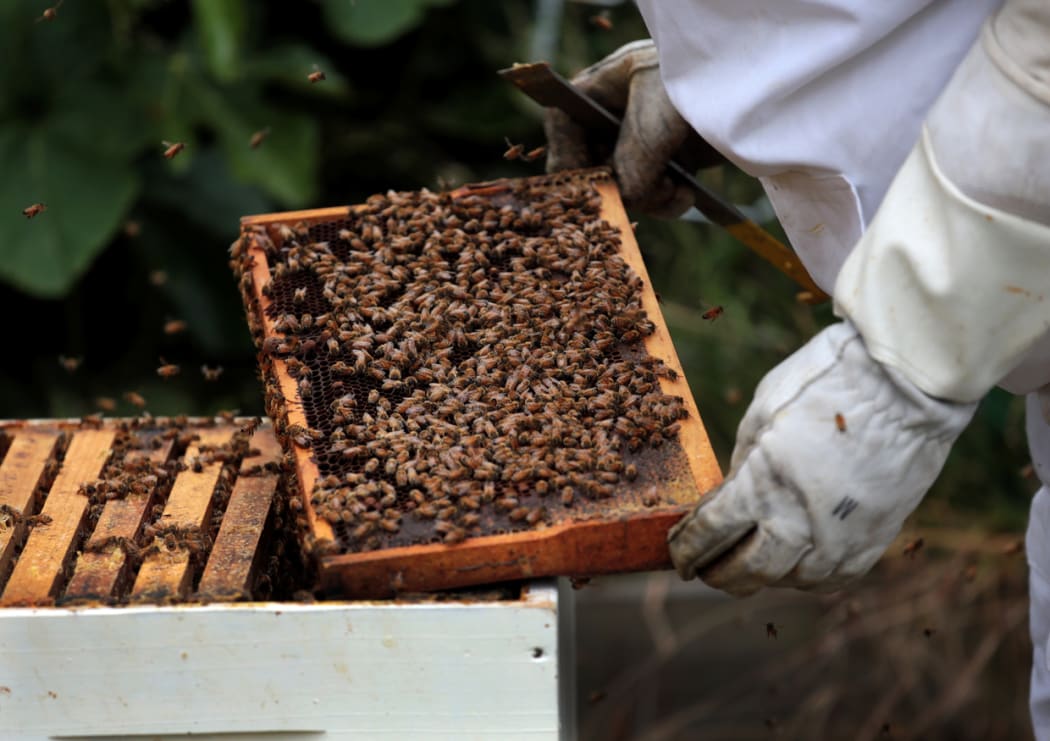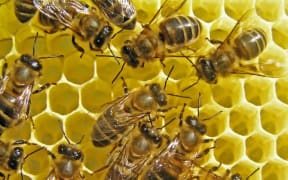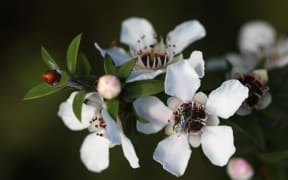A Murchison beekeeper faces possibly $100,000 in losses after the - likely accidental - poisoning of hives in the area.

Bees. (file photo) Photo: RNZ / Diego Opatowski
Ricki Leahy first noticed dead and dying bees around his queen-rearing hives in the Mangles Valley just over a week ago.
He estimated hundreds of thousands of bees from 220 hives on his property, and in 70 hives next door, had suffered and died.
He said it was still too early to say if the deaths were linked to an accidental poisoning from attempts on nearby properties to poison wasps.
"We don't know yet. We need to get test results back otherwise we're just speculating. Samples have been sent to the Ministry for Primary Industries and now we're just busy tidying up the hives and forming a plan on how to move forward."
Mr Leahy is a veteran beekeeper with more than 45 years' experience in the industry.
"I love beekeeping because it has such a small footprint on the environment, and the creatures are fundamental to the success of all agriculture though pollination. Bees are part of so many aspects of what's happening in the countryside - they keep you aware of what's flowering, the weather, the temperature.
"There's always something to learn - it grips you always because they're such fascinating little creatures."
Mr Leahy is also an ApiNZ board member and produces Tutaki Honey through his business Trees and Bees. He said the groundswell of support from around the country had helped counter the loss.
The emotional setback to his queen bee-rearing operation was greater than the financial loss, for which he had insurance. He had 400 queen bees which had already mated and was hoping to have up to 1600 ready to be moved on. He said one queen bee was worth about $50.
Beehives and associated infrastructure would either be lost or would have to be extensively sterilised.
"It's amazing how many people from within the industry have phoned up and offered help and support. It's heartening the support we've been getting - it's great."
Mr Leahy said the incident had been upsetting to his staff, but their jobs were all secure. He said rearing queen bees was only one side of the business, and the honey extraction side of it was still functioning as normal. He said the death of the bees had no impact on the quality of honey from the property.
While he was fairly sure of what had caused the bees to die, he had to wait for confirmation, he said.
MPI said the suite of tests being done would take up to a month. Spokesperson Lesley Patston said routine tests were being carried out for all common bee pests and diseases, and it was also looking at the possibility of "inadvertent poisoning with agricultural pesticides".
"While this is taking place, a skilled apicultural expert is working with the beekeepers involved," Ms Patston said.







